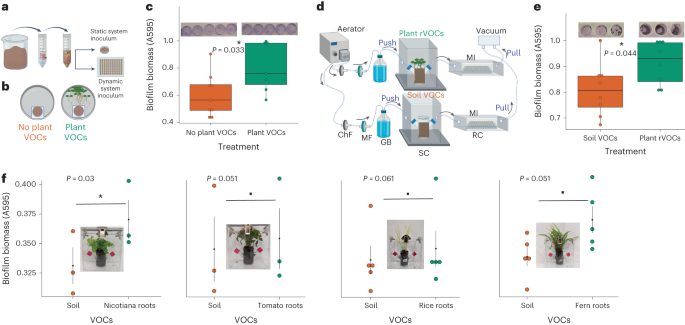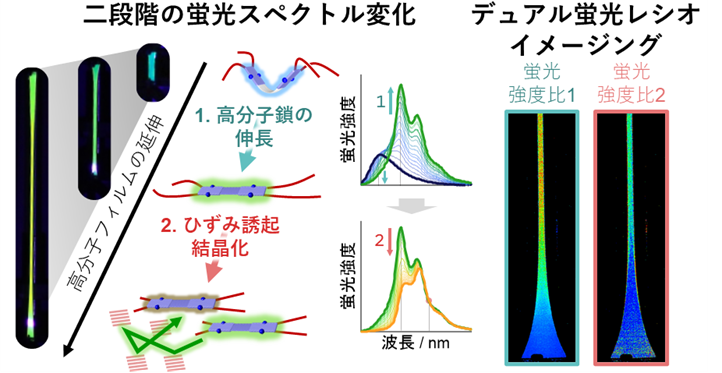2023-12-06 シンガポール国立大学(NUS)
◆5年間の研究で、植物が地上でストレスを感じると放出されるメチルジャスモネート(MeJA)が、地下でも放出され、土壌中の微生物とのコミュニケーションを改善することが判明しました。MeJAの存在により、遠くのバクテリアがバイオフィルムを形成し、これがさらなる揮発性化合物の放出を促し、作物の成長が最大30%向上しました。この発見を利用して、植物と有益な微生物の間の自然なコミュニケーションを強化し、新しい世代の農業用化学物質を開発するための特許が取得されました。
<関連情報>
- https://news.nus.edu.sg/nus-scientists-uncover-hormone-that-can-boost-plant-growth/
- https://www.nature.com/articles/s41589-023-01462-8
根からの揮発性ジャスモン酸メチルが宿主に有益な土壌微生物群のバイオフィルムを誘発 Volatile methyl jasmonate from roots triggers host-beneficial soil microbiome biofilms
Omkar S. Kulkarni,Mrinmoy Mazumder,Shruthi Kini,Eric D. Hill,Johanan Shao Bing Aow,Samantha Mun Lin Phua,Untzizu Elejalde,Staffan Kjelleberg & Sanjay Swarup
Nature Chemical Biology Published:13 November 2023
DOI:https://doi.org/10.1038/s41589-023-01462-8

Abstract
The rhizosphere is a niche surrounding plant roots, where soluble and volatile molecules mediate signaling between plants and the associated microbiota. The preferred lifestyle of soil microorganisms is in the form of biofilms. However, less is known about whether root volatile organic compounds (rVOCs) can influence soil biofilms beyond the 2–10 mm rhizosphere zone influenced by root exudates. We report that rVOCs shift the microbiome composition and growth dynamics of complex soil biofilms. This signaling is evolutionarily conserved from ferns to higher plants. Methyl jasmonate (MeJA) is a bioactive signal of rVOCs that rapidly triggers both biofilm and microbiome changes. In contrast to the planktonic community, the resulting biofilm community provides ecological benefits to the host from a distance via growth enhancement. Thus, a volatile host defense signal, MeJA, is co-opted for assembling host-beneficial biofilms in the soil microbiota and extending the sphere of host influence in the rhizosphere.



